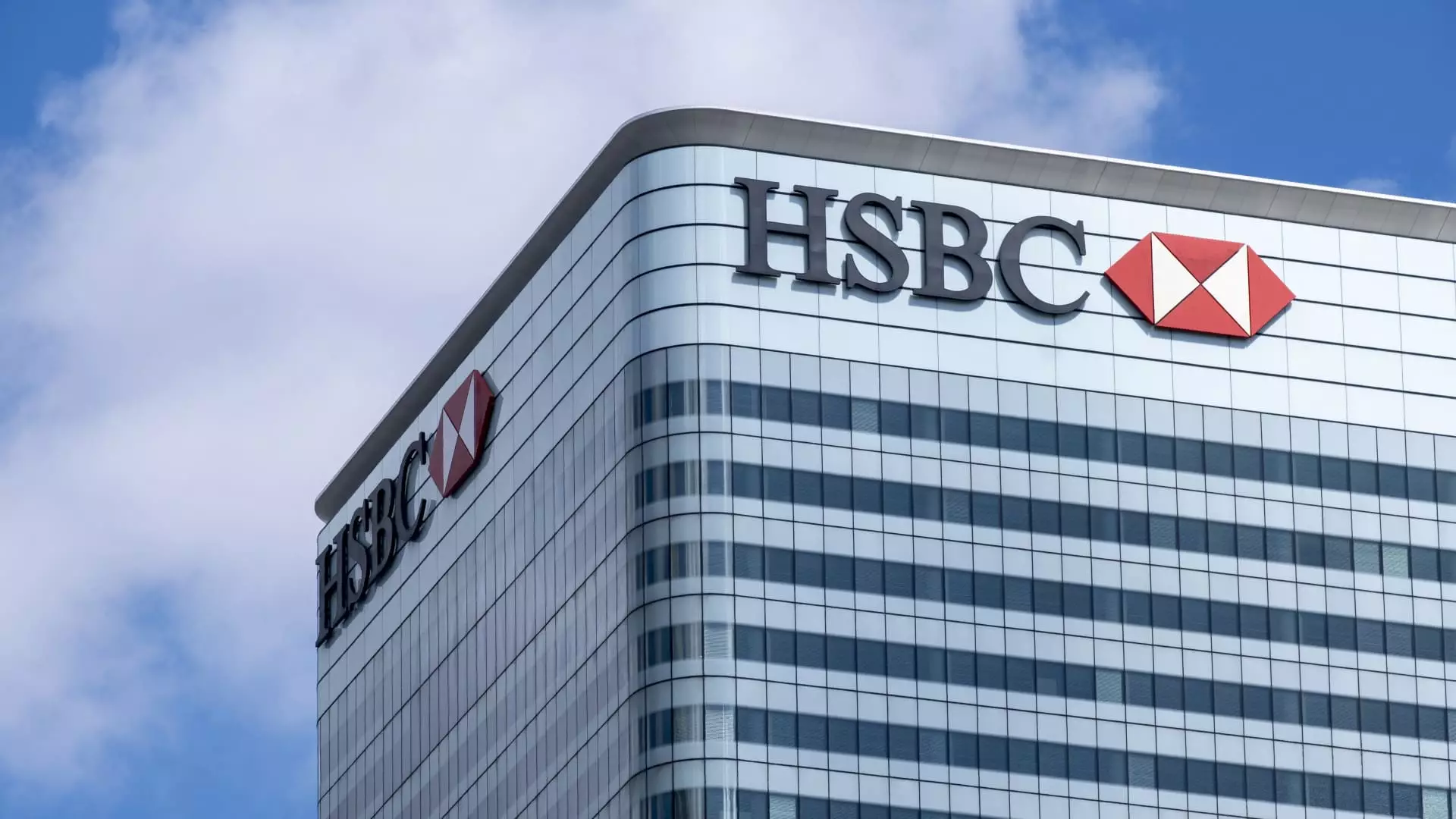In a bustling financial landscape, HSBC Holdings plc, Europe’s most prominent banking institution, recently demonstrated its financial fortitude by announcing a share repurchase scheme totaling up to $3 billion. This declaration followed the release of their third-quarter earnings report, which surpassed market expectations, catalyzed by robust revenue expansion primarily from its wealth and personal banking segments. Such a performance not only underscores HSBC’s operational strength but also highlights the institution’s strategic maneuvers in navigating a complex economic environment.
HSBC’s earnings report was remarkable, showcasing a pre-tax profit of $8.5 billion—up from $7.71 billion during the same period the previous year. This represented an impressive 10% year-over-year increase, outpacing the $8 billion anticipated by analysts according to the LSEG SmartEstimate. When examining the revenue figures, HSBC reported a commendable $17 billion, exceeding the analysts’ consensus prediction of $16.2 billion. This growth, a 5% increase from the previous year’s quarter, reflects the bank’s ability to leverage favorable market conditions and operational efficiencies effectively.
Additionally, the profit after tax stood at $6.7 billion, which marks a significant improvement of $500 million compared to the third quarter of 2023. Such figures reveal not only adept management but also prudent investment in the sectors yielding considerable returns. The upward trajectory of earnings per share, which rose to 34 cents from 29 cents year-on-year, further illustrates the bank’s profitability and commitment to shareholder value.
The recently announced $3 billion share buyback program indicates a robust confidence in the bank’s financial health. With a cumulative share repurchase amount reaching $9 billion for the year—having previously set aside $3 billion in the first and second quarters—HSBC demonstrates a strategic focus on enhancing shareholder value. This action not only boosts the stock’s earning per share but also conveys a strong message to the market about the bank’s long-term viability.
Moreover, HSBC’s board sanctioned a third interim dividend of $0.1 per share, which is a further indication of the bank’s solid earnings and commitment to return profits to shareholders. Such financial maneuvers typically enhance investor confidence and may lead to a more favorable market performance, as evidenced by a 3.5% rise in HSBC’s shares during Hong Kong trading following the earnings announcement.
Despite the positive results, the bank faces potential headwinds, particularly with the declining net interest margin, which slipped to 1.5% from 1.7% a year ago. This drop raises concerns about the sustainability of profit margins amid shifting interest rate dynamics. Higher interest rates had previously bolstered profitability, but with the current cycle showing signs of decline, banks—including HSBC—may need to reassess their operational frameworks.
Operating expenses also saw a 2% increase in comparison to the previous year, driven partly by technology investments. HSBC’s current management is evidently sensitive to the need for operational efficiency, with recent reports suggesting that CEO Georges Elhedery may consider conducting a review of senior management as part of broader cost-cutting strategies aimed at saving up to $300 million.
In conjunction with its financial reporting, HSBC is undertaking significant organizational restructuring, shaping its operations into four distinct business units that reflect strategies tailored for both Eastern and Western markets. This restructuring is not only timely but essential for HSBC’s mission to streamline processes and improve overall agility in decision-making.
Elhedery’s leadership, which began this past July, has already set the foundation for these transformations. By fostering a more nimble organizational structure intended to reduce redundancies and enhance clarity in operational directives, HSBC is positioning itself to effectively respond to evolving market conditions. This shift is slated to take effect in January, signaling a proactive approach to encapsulate the changing dynamics of the global banking industry.
HSBC’s latest financial performance showcases a bank that is not just surviving but thriving amidst complex market conditions. The combination of solid earnings, strategic share repurchase, and restructuring efforts suggests a forward-looking institution poised for sustainable growth. However, as interest rate environments fluctuate and operational costs rise, HSBC must remain vigilant and adaptable. The next chapter in HSBC’s narrative will depend on how effectively it navigates these challenges while leveraging its significant market strengths.


Leave a Reply